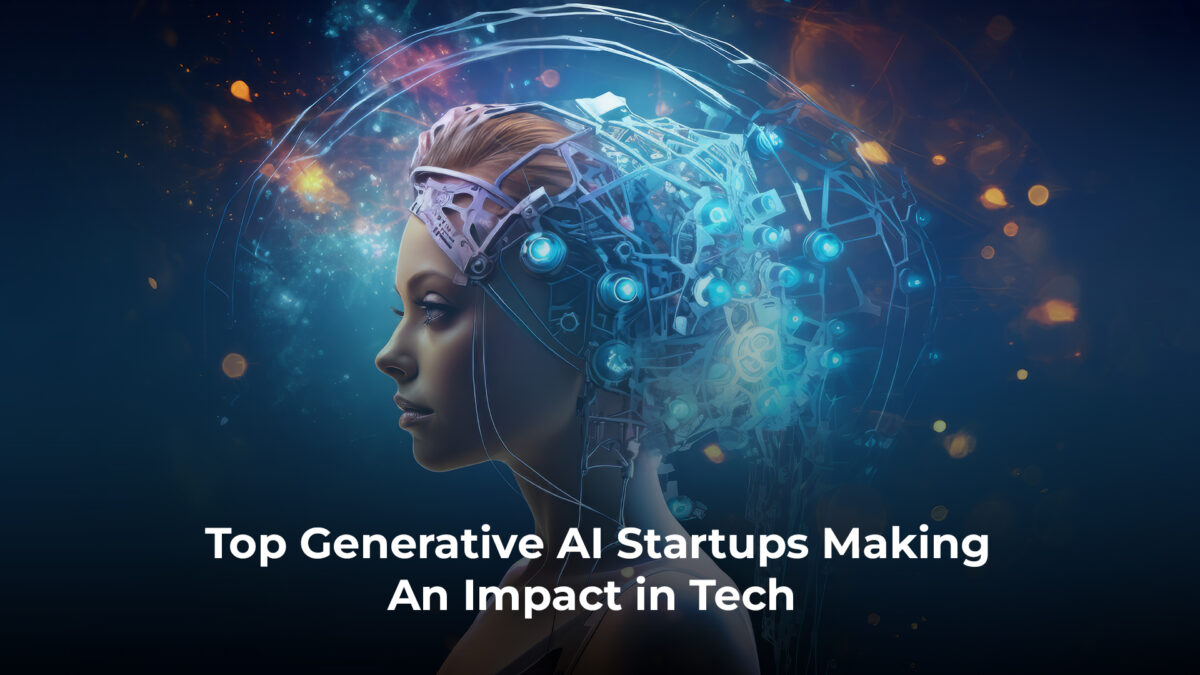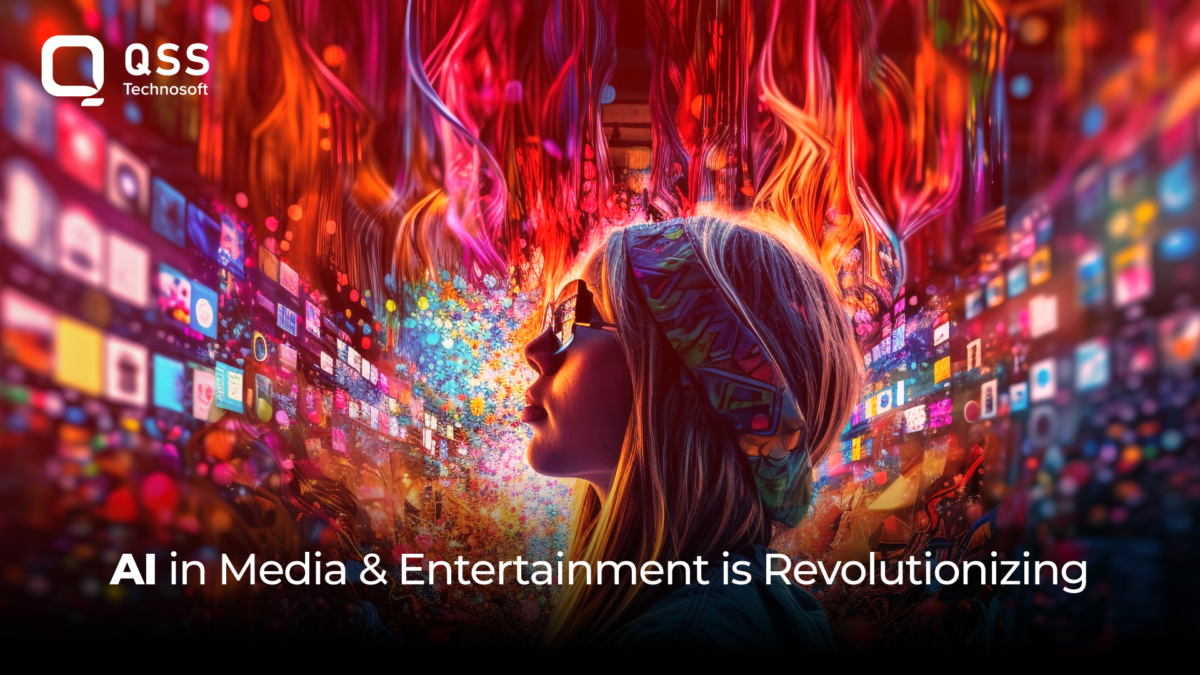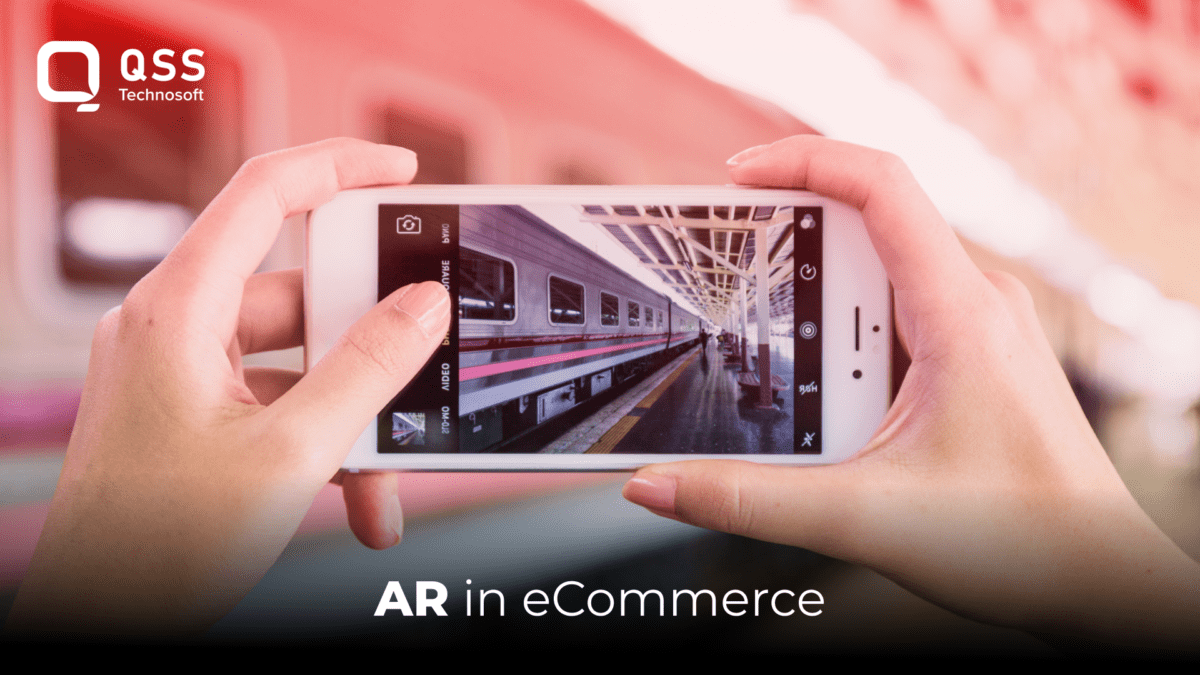Generative AI, a subset of artificial intelligence, has come up as a transformative technology for various industries, including healthcare. This innovative technology can create new data from existing datasets, generate realistic images, and even predict complex medical data patterns that can be further used for patient treatment purposes. This guide will provide you with an in-depth analysis & applications of Generative AI for Healthcare IT, emphasizing its benefits, future trends & technological advancements it brings to the field.
Understanding Generative AI
Generative AI refers to a class of artificial intelligent algorithms that has potential to generate new content whether it is images, text, and other data, by learning from existing data. By using deep learning techniques, Generative AI understands patterns & structures in the existing datasets and eventually creates new yet similar data to be used accordingly.
This capability of Gen AI is crucial in areas where data generation is costly or limited, such as healthcare. Before proceeding further, let’s learn about the types of Gen AI Models:
Types of Generative AI Models
There are several types of Generative AI models, some popular ones include:
Generative Adversarial Networks (GANs): This model works with two networks, a generator and a discriminator. Where generator creates new data, discriminator keeps on evaluating if the generated data is authentic. Both networks work together to produce realistic data. This model architecture is highly used in applications like-
- DALL-E: Generates stunning images from textual descriptions.
- Midjourney: Produces personalized recommendations, targeted campaigns, and enhanced customer satisfaction.

Variational Autoencoders (VAEs): This model of Gen AI encodes input data and decodes it back to the original space, eventually generating new data points that are similar to the original data.
- This is often used in image generation, data compression and anomaly detection and support various healthcare imaging tasks.

Transformers: Serving as a foundation for many modern language models, it is a type of deep learning model that excels at handling sequential data and generating contextually accurate text. Following are the applications that uses transformers architecture:
- GPT (Generative Pre-trained Transformer): GPT by OpenAI can assist in automating tasks, generating creative content & offering personalized recommendations.
- Bard: An AI model that writes impressive poetry, scripts, stories, social media posts & captivating ad copies etc.
Recurrent Neural Networks (RNNs): Best for generating text and time-series data! These are well known for predicting the next data point in a sequence and generating accurate text.
- Used for tasks like text generation and time-series prediction.

Read also:- Artificial Intelligence in Healthcare: Innovative Use Cases and Application
Importance and Relevance of Generative AI in Healthcare IT
Industries like Healthcare are greatly transformed with the evolution of Gen AI. Combining the power of Gen AI, healthcare industries can-
- Generate high-quality medical images
- simulate biological processes, and
- personalize patient care
This can revolutionize healthcare diagnostics, further treatment plans, and scientific research leading to enhanced data accuracy, reduced medical costs, and improved patient care.
How Generative AI Differs from Traditional AI?
Traditional AI is mainly focused on classification, regression, and prediction tasks by just analysing and interoperating existing data. On the other hand, Generative AI goes a step ahead by creating new medical data and insights. It is centered on new and improved medical data creation and synthesis and thus offers personalised healthcare solutions, tailored to individual patient needs and medical histories.
Here are the key differences between the two-
| Aspect | Traditional AI | Generative AI |
| Primary Focus | Classification, regression, and prediction tasks | New and improved data creation and synthesis |
| Data Handling | Analyzes existing data to provide insights | Produces new data based on learned patterns |
| Outputs | Predictions, classifications, regression outputs | New data points, images, text, etc. |
| Problem Solving | Solves problems using historical data and patterns | Tackles problems by generating new possibilities and data |
| Use Cases | Fraud detection, disease diagnosis, customer segmentation | Image generation, text synthesis, drug discovery simulations |
| Techniques | Decision trees, SVM, logistic regression, neural networks | GANs, VAEs, Transformers, RNNs |
| Example Applications | Predicting stock prices, classifying spam emails | Generating high-resolution medical images, creating art |
| Complexity | Typically simpler models focused on specific tasks | More complex models capable of creative and innovative outputs |
| Data Requirement | Requires labeled datasets for training | Can work with both labeled and unlabeled datasets |
| Strengths | Provides accurate predictions and classifications | Generates realistic and high-quality new data |
| Limitations | Limited to the patterns and data it has been trained on | Requires significant computational resources and complex training |
Top Applications of Generative AI in Healthcare
Generative AI is offering immense opportunities to the healthcare industry including enhanced patient care, revolutionizing medical imaging, and accelerating the journey of drug discovery. Let’s explain all these in detail:

Medical Imaging and Diagnostics
Generative AI makes use of innovative AI tools to create realistic images while identifying disease patterns and other medical abnormalities.
- Improved MRI Image Quality: Generative AI models like GANs, are used to improve the resolution of medical images such as MRI scans. A high-resolution MRI scan can lead to better diagnosis and treatment planning.
- Identify Medical Anomalies: After evaluating previous datasets, Gen AI algorithms can identify abnormalities which are otherwise overlooked by humans. This is extremely helpful in detecting early signs of life-threatening diseases such as cancer, neurological disorders and cardiovascular diseases.
Drug Discovery & Development
Generative AI is being used to simulate chemical reactions, predict molecular structures of drug compounds, and shorten the research timelines, detailed info below-
- Simulating Chemical Reactions:– Helpful in finding new drug compounds and their interactions with biological targets. AI models can be used to identify better drugs, reducing the time and cost.
- Predicting Molecular Structures:- AI models can predict the 3D structures of drug molecules & how drugs interact with their targets. This helps in providing the most effective ailments for diseases.
- Speed up Research Timelines:- The traditional drug discovery process was time-consuming and expensive. This process speeds up through Gen AI as it quickly generates and tests new hypotheses, identifying potential drug candidates, and predicting their efficacy. This not only shortens the time to market for new drugs but also reduces research and development costs.
Personalized Medicine
Generative AI is offering tools to offer individual treatments to different genetic profiles.
With data from electronic health records (EHRs) and genomics, generative AI algorithms can predict how different patients with unique genes will respond to various treatments.
- Personalized Treatments to Individual Genetic Profiles: Generative AI can analyze genomic and identify how different people respond to different treatments. With this, healthcare providers can develop personalized treatment plans that are more effective and have less side effects. This approach is highly adopted in the oncology field.
- Predictive Modeling: Analyzing clinical data, genetic information, and lifestyle factors, AI models can predict patient outcomes. This is very helpful to predict diseases such as cancer. Following this approach, tumor genetics can be identified and targeted therapies can be recommended to patients. The same goes for lifestyle diseases like diabetes, where personalized plans are given to make a change in a patient’s lifestyle.
Remote Patient Monitoring
Gen AI can make use of data from remote wearable devices of the patients and can offer personalized care for patients who are unable to come directly to healthcare facilities.
- Remote Monitoring Wearables: Generative AI can improve the accuracy of remote monitoring devices by generating realistic data from health vitals like heart rate and blood pressure.
- Early Detection of Health Issues: AI models can detect early signs of health issues and alert healthcare providers to take proactive measures to overcome them.
Benefits of Generative AI in Healthcare IT
Still wondering about the vast benefits of Gen AI for Healthcare IT? Here are some most promising benefits worth knowing-
Improved Accuracy and Efficiency in Diagnostics
- Provides high-quality, detailed images.
- Identifies patterns and anomalies overlooked by humans.
- Detects early signs of diseases like cancer, cardiovascular, neurological
- Automates image analysis, speeding up diagnostics.
- Reduces workload and human error.
Accelerated Drug Discovery Processes
- Speeds up the drug discovery process.
- Simulates chemical reactions and predicts molecular structures.
- Screens potential drug candidates faster.
- Reduces research and development time.
- Quicker attention to new treatments.
Enhanced Patient Outcomes Through Personalized Care
- Creates personalized treatment plans.
- Analyzes genetic profiles, lifestyle, and medical history.
- Predicts patient responses to treatments.
- Chooses effective therapies with fewer side effects.
- Improves patient outcomes and satisfaction.
Cost Reduction in Research and Treatment
- Increases efficiency and speed in research.
- Reduces failed trials
- Lowers overall drug development costs.
- Prevents unnecessary tests and procedures.
- Reduces healthcare costs for providers and patients.
Real-Time Monitoring
- Enhances remote patient monitoring.
- Analyzes data from wearable devices.
- Detects health issues early for proactive measures.
- Prevents hospitalizations and complications.
- Improves overall patient health.
Improved Clinical Decision Support
- Provides robust clinical decision support.
- Synthesizes data from medical records, imaging, and genomics.
- Helps doctors make informed decisions.
- Ensures best possible care based on evidence and patient data.
Enhanced Research Capabilities
- Offers powerful tools for exploring hypotheses.
- Generates synthetic datasets for training and validation.
- Fills data gaps and enhances research robustness.
- Opens new avenues for scientific exploration.
Optimized Resource Allocation
- Optimizes healthcare resource allocation.
- Predicts patient inflows and peak times.
- Manages staff, equipment, and facilities effectively.
- Reduces waiting times and improves patient care.
Increased Accessibility to Healthcare
- Makes healthcare more accessible in remote areas.
- Provides high-quality diagnostics and treatment via telemedicine.
- Reduces long-distance travel.
- Assists in training healthcare workers in remote regions.
- Enhances overall quality of care.
Future Trends and Innovations in Generative AI
Generative AI is continually evolving and when it is integrated with other emerging technologies, it promises a revolutionizing Healthcare IT. Some key trends of Artificial Intelligence & Healthcare include:
Quantum Computing +AI
With further evolution of Quantum Computing, AI will have more power to process complex biological data at unprecedented speed.
AR/VR + AI
AR/VR when combined with Gen AI can improve surgical planning and training.
Blockchain + AI
Gen AI coupled with blockchain technology can offer robust security and privacy of patient data. This facilitates seamless data sharing among healthcare providers & medical departments
Robotics + AI
AI integration robotics could lead to highly precise surgical robots who can perform complex surgeries without any human intervention. Helpful in reducing surgical risks and recovery times.
Advanced AI Algorithms for Rare Diseases
Advanced AI algorithms could enhance the treatment plan for rare diseases. Helpful for patients who are currently deprived of any effective therapies for their disease.
What can we expect further with Generative AI?
The next decade will likely witness several transformative changes in healthcare driven by Generative AI:
- Widespread Adoption of AI-Powered Diagnostics that will further reduce diagnostic errors and turnaround times.
- Expansion of AI in Drug Development for complex diseases, such as cancer, neurodegenerative disorders.
- Personalized Preventive Medicine for early medical interventions.
- AI powered Telemedicine and Remote Care for chronic disease management.
Best Practices for Implementing Generative AI in Healthcare IT
Follow these practices while implementing Gen AI in your healthcare facility-
Careful Planning and Assessment
- Identify areas where you can apply Gen AI approach AI and can benefit from healthcare measures such as diagnostics, treatment planning, or patient monitoring.
Hire a Skilled AI Professionals Team
Hire Generative AI developer team to ensure a successful deployment of Generative AI:
- Many IT companies like QSS Technosoft offer vast expertise in AI and Healthcare IT. Select them to develop relevant AI-based solutions for your healthcare needs.
- Offering AI training to your healthcare staff will further keep them updated with the latest advancements in AI and healthcare technologies.
Choose the Right Set of AI Tools & Technologies
- QSS’s expert AI team has a vast understanding and skills of robust AI platforms and frameworks that support the development and deployment of scalable and secure AI models.
Continuously Monitor and Make Improvements
- Set clear metrics to evaluate the performance of AI systems, such as accuracy, efficiency, and user satisfaction.
- Don’t forget to gather input from users and stakeholders, allowing for continuous refinement and optimization of AI solutions.
Conclusion
Generative AI is revolutionary technology which is highly being adopted by Healthcare IT for enhancing diagnostic accuracy, accelerating drug discovery, personalizing patient care, and reducing time & costs. We are yet to witness how emerging technologies and trends in Gen AI will transform healthcare over the next decade.
This innovative technology coupled with other cutting-edge technologies like AR/VR, ML and Robotics, can deliver more accurate, efficient, and personalized care to patients.
Healthcare facilities, clinics and other medical departments & researchers can embrace this innovative technology to stay at the forefront of medical innovation. By investing in hiring expert generative AI team, they can harness the full potential of AI for their healthcare solutions.
Hire services from a top-tier Generative AI development company to stay ahead among your competitors! Let’s connect over a quick call to discuss further about your Gen AI healthcare project!
We are proud to mention that our work has been recognized by leading B2B reviews and research platforms like GoodFirms, Clutch, MirrorView, and many more.















